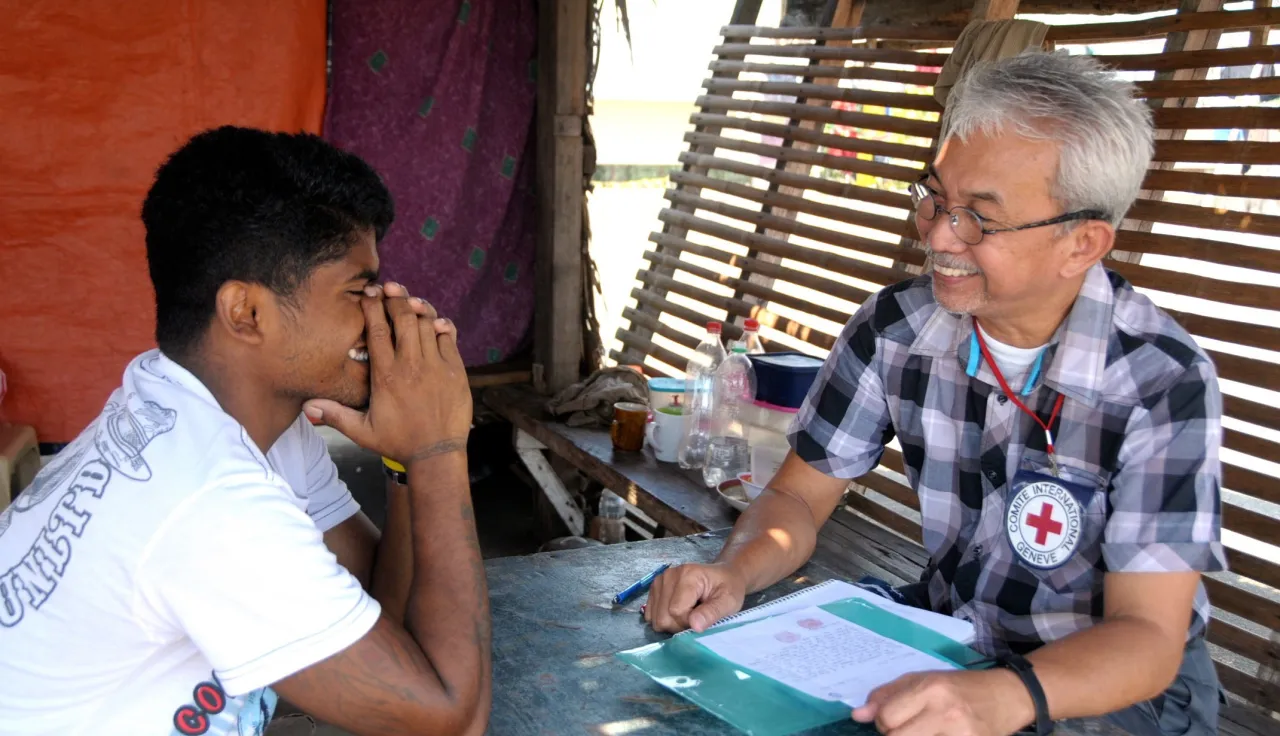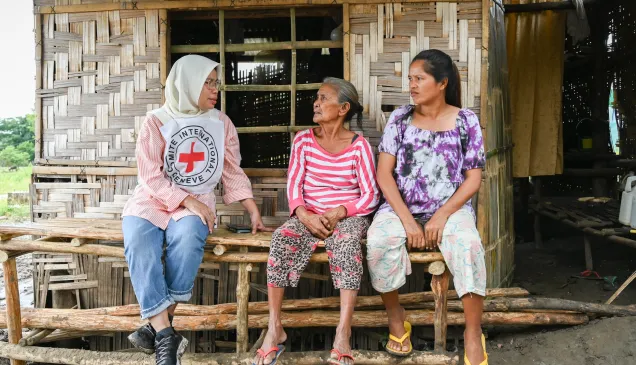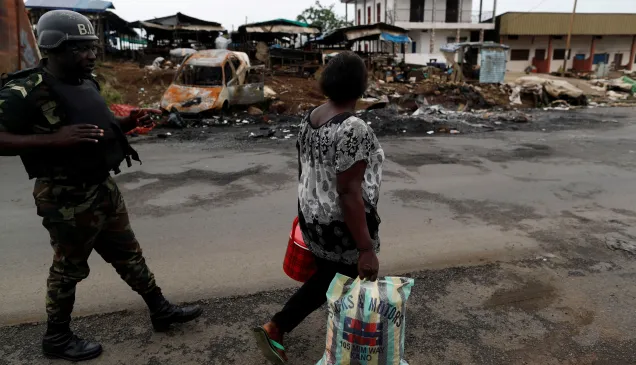Philippines: Detainee reconnects with long-lost father after 20 years

ICRC field officer Alvin Loyola still remembers when a 25-year-old detainee in Aurora Provincial Jail asked him: "Do you think that you can find my real father?"
The detainee had not been visited by any family members since being detained in 2009. After five years of detention in the eastern part of central Luzon, he confided in Alvin that he was separated from his father as a baby.
Alvin told the detainee to write a Red Cross Message to his father and when the ICRC could locate him, the message would be delivered. He did so with the assistance of Alvin, as he did not know how to write. Instead of a signature at the end of the message, he gave his thumbprint.
Even then, the detainee was skeptical, saying "I don't think that you will be able to find him." The only information he had were the names of his real parents and siblings, and a name of the municipality where they might be residing.
Alvin asked around about the detainee's father, using every chance he had when visiting the region (of the municipality) to try to locate him, but to no avail. Months passed without a clue.
Then one day in March, by coincidence, it happened. During a field trip to a remote village in Quezon province, Alvin asked about the man. Even though the village was not even in the municipality where the detainee's father was believed to reside, the area was inhabited by the same indigenous tribe that the detainee belonged to.
"He was here yesterday to exchange eels for rice," said a local councilman.
When Alvin finally set eyes on the man, he knew it was him. The detainee and his father looked so much alike!
The man was speechless and almost in tears when he received the news about his long-lost son. According to the father, his sister had adopted his son soon after he was born. The father had not heard from them since the family moved out of the village a few years later.
Alvin went back to the jail to tell the detainee the good news. As the detainee's surprised face turned to a big smile, Alvin proudly said: "I told you that the ICRC would find him."
The detainee has since sought support for a reunion with his father. In his application for the ICRC's Family Visit Program, he put his signature this time. He has even learned how to write his name, thanks to educational programmes provided to detainees by the government.
Today, the detainee looks forward to the moment when he will meet his father for the first time in two decades.
Whenever people are separated or without news of their loved ones - as a result of armed conflict, violence, natural disaster or other instances requiring a humanitarian response - the International Red Cross and Red Crescent Movement mobilizes its resources to restore family links.
Story by Ai Awaji, ICRC field delegate



